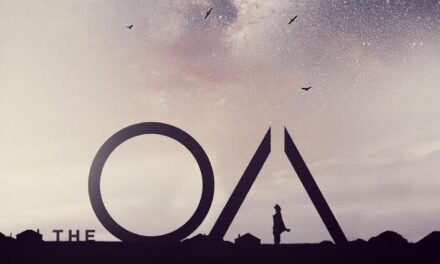FUTURE [of] ARCHIVES
Université du Québec à Montréal, Canada
20-22 June 2023 (in-person)
Deadline for submissions (20-minute presentations, panels of three 20-minute papers, or practice-based research/workshops): 16 January 2023. CfP at https://iamhist.net/2022/09/call-papers/
IAMHIST is the International Association for Media and History, an organization of scholars, filmmakers, broadcasters and archivists dedicated to historical enquiry into film, radio, TV and other media.
Archives have always played a considerable role for research and creation, especially in film and media studies. By virtue of their form and content, archives put at the forefront questions of possible and alternative historiographies and the shaping of memories and invites reflection on forgetting. Ranging from censorship to emancipation, archives are often source and reason for debate, powerplays and struggles as they can be object of censorship, but also sources and ways of emancipation. They are not only sites of memory, but also sites and signs of social and cultural change. There has been an increased scholarly interest in archives since the arrival of digital tools and the Web, and the concept of the archive itself has been questioned, discussed, and redefined.
This conference aims to revisit these archival transformations by bringing into focus archives’ blind spots, notably in relation to their accessibility and ecological dimensions. How do existing archival institutions, associations or private collectors and archivists address technology and media transformations? What are the current and future challenges of archive research? Use? Configurations? What type of ‘new’ archives can be imagined and created in relation to technology and media transformations?
The IAMHIST Conference will be particularly interested in proposals dealing with media archives (film, radio, video, television, Web, photographs, etc.) but also warmly welcomes archives that use media and technology institutionally (museums, associations, vernacular archives etc.).
We invite scholars, archivists, practitioners, and artists to send a proposal that concerns one or more of the following topics:
- Archives and accessibility
- Archives, restitution, and memory
- Archives and social justice
- Archives and ecology / sustainable archives
- Archives and decolonization
- Case studies of archival use in media history research
- Archives and (media-) storage
- Reuse of archives in research, artistic projects, and practice
- Archival material in film and arts
- Reflections on how to archive research/scholarly activities
- Vernacular, private, and institutional archives
- History of media archives
- Financing and funding of archives
- Internationalization of archives
- Local and regional archives
- Archives, memory, and nostalgia
- Archives and emotion
The deadline for submissions is 16 January 2023. You can submit proposals here: iamhistconference2023@gmail.com
Individual paper proposals should consist of a title, an abstract of 200 to 300 words and a short biography. We especially welcome proposals from early career researchers and practitioners. Panel proposals (of three papers) are welcome; they need to be registered by one individual presenter of the panel who must include the title of the panel and all paper abstracts and short bios. We also appreciate proposals for archival, artistic or multimedia/practice-based projects or workshops. You are welcome to discuss their suitability with the conference organizers in advance of the deadline.
Notifications of decisions will be sent alongside additional information on travel and accommodation by early February 2023; registration will be open by that day. Registration fees will be kept as low as possible and depend on several funding opportunities that the organizers are currently seeking. Conference attendees are expected to be members of IAMHIST – there will be an opportunity to join at the time of registration. Information about IAMHIST membership can be found here: http://iamhist.net/membership/.
You can download the Call for Papers in English and French here: CFP_IAMHIST_MONTREAL_2023
*If you identify as a person with a disability and need support (for printed documents in another format, for American Sign Language or Langue des signes québecoise, access to remote locations, etc.), please express/communicate your needs to the organizers prior to the beginning of the congress via this address: iamhistconference2023@gmail.com
Scientific Committee / Comité scientifique
- Charles Acland (Concordia University)
- Camila Arêas (Université de la Réunion)
- Gabriele Balbi (Università della Svizzera italiana)
- Pierre Barrette (Université du Québec à Montréal)
- Gracen Brilmyer (McGill University)
- Jennifer Carter (Université du Québec à Montréal)
- François Dansereau (McGill University)
- Talitha Ferraz (Escola Superior de Propaganda e Marketing, Rio de Janeiro)
- Jean-François Gauvin (Université Laval)
- André Habib (Université de Montréal)
- Aleksandra Kaminska (Université de Montréal)
- Amy Malek (Oklahoma State University)
- Eugenia Mitchelstein (Universidad de San Andrés)
- Shin Mizukoshi (Kansai University, 関西大学)
- Caroline Muller (Université de Rennes)
- Zamansele Nsele (The University of Johannesburg/University of California, Berkeley)
- Viva Paci (Université du Québec à Montréal)
- Valentina Pricopie (Academia Română)
- Elena Razlogova (Concordia University)
- Maria Rikitianskaia (Regent’s University London)
- François Robinet (Université Paris-Saclay)
- Annie Rudd (University of Calgary)
- Luis Vargas Santiago (Universidad Nacional Autónoma de México)
- Valérie Schafer (Université du Luxembourg)
- Anna Żeglińska (Uniwersytet Gdański)
Organizing Committee / Comité d’organisation
- Llewella Chapman (University of East Anglia)
- Sarah Heussaf (Université du Québec à Montréal)
- Katharina Niemeyer (Université du Québec à Montréal)
- Ola Siebert (Université du Québec à Montréal)
- Dominique Trudel (Audencia Business School)
- Celina Van Dembroucke (Université du Québec à Montréal)





